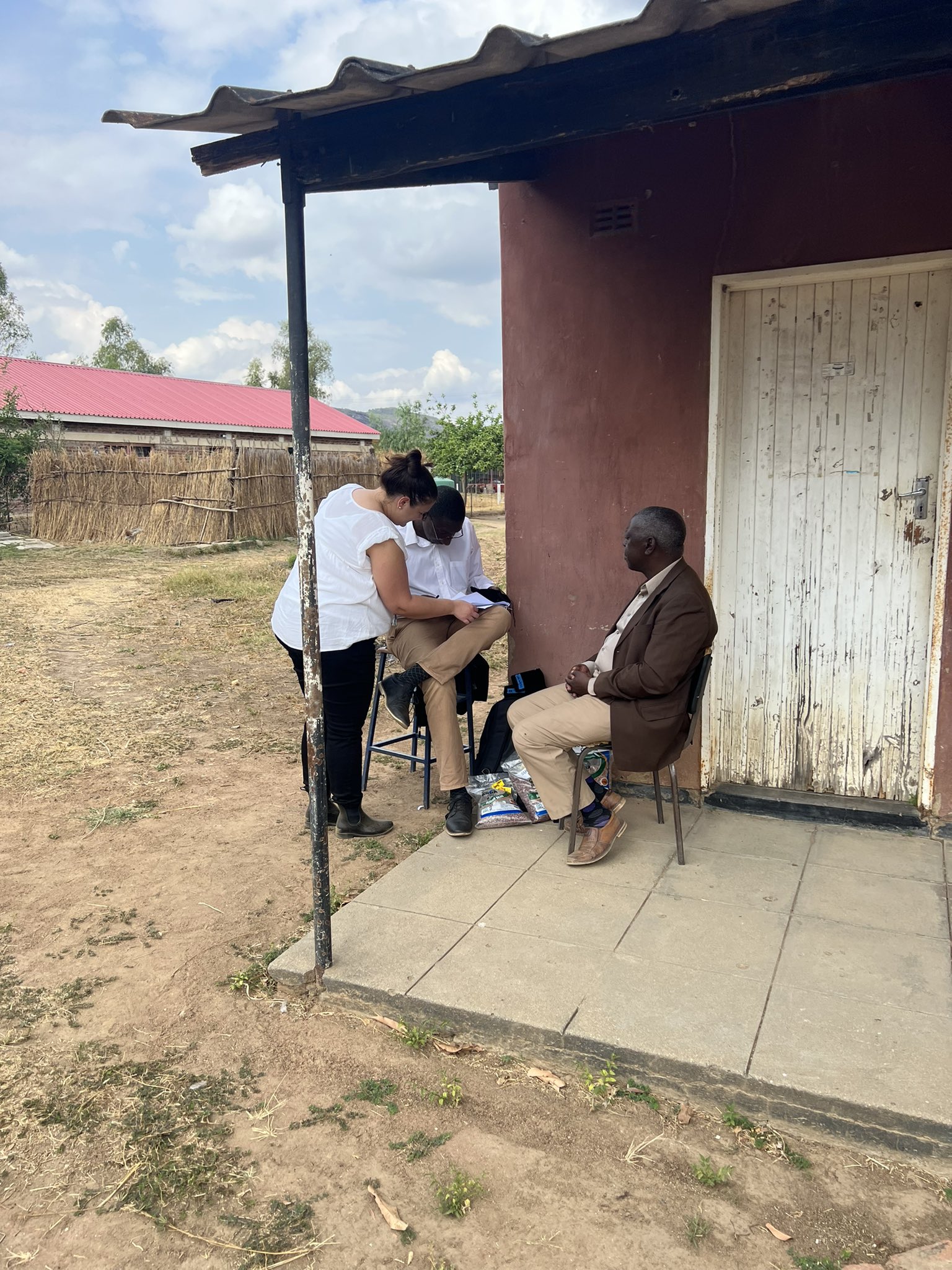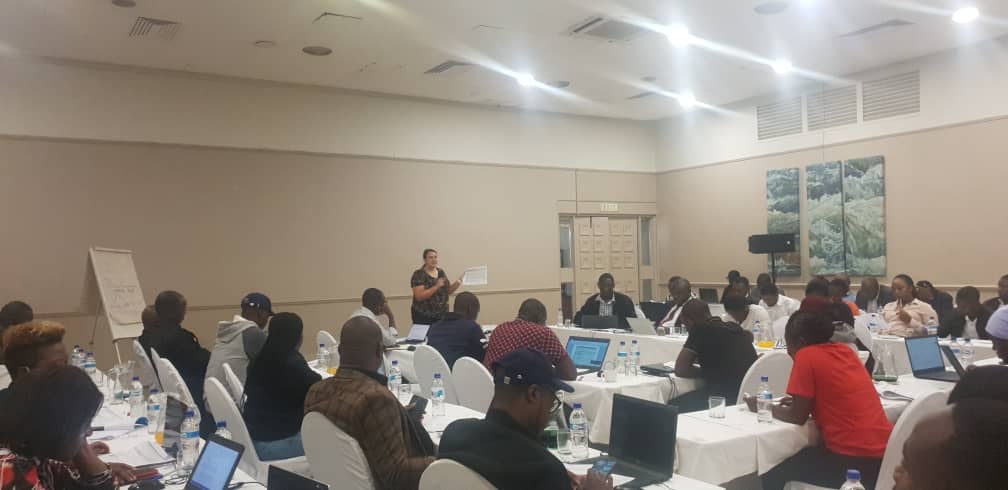AFRE Ph.D. Student Conducts Seed Variety Adoption Study in Zimbabwe
Herrington’s research in Zimbabwe focused on evaluating the impact of various factors on farmers’ adoption of and willingness-to-pay (WTP) for certain iron-and zinc-enriched bean and vitamin A maize seed varieties.

Caitlin Herrington is a fourth year Ph.D. student in the Department of Agricultural, Food, and Resource Economics (AFRE) and currently in midst of data collection for her dissertation. Her passion for international development led to recently spending 23 days in Zimbabwe with a team of researchers surveying 2000 farmers for a collaborative study with the International Food Policy Research Institute (IFPRI) to assess farmer adoption of biofortified crops. Herrington’s portion of the research in Zimbabwe focused on evaluating the impact of various factors on farmers’ adoption of and willingness-to-pay (WTP) for certain iron-and zinc-enriched bean and vitamin A maize seed varieties.

Herrington conducted non-hypothetical experiments to assess farmer WTP for both maize and bean seed with three rounds of information across two treatment groups evaluating the impact of seed pack quantity on WTP bids.
“In the first round. we examined the impact of nutrition labeling on farmer WTP for each seed,” said Herrington. “In the second round, we shared the national micronutrient deficiency rates, the health impacts of those deficiencies, and information on the specific seed varieties’ ability to meet daily nutrition requirements. Lastly, the third round, we focused on consumption attributes.”
With smallholder farms being prominent in Zimbabwe, Herrington had to think a little differently about how the producers might be impacted by the labeled information.
“Most smallholder farmers are growing these varieties to consume themselves first,” said Herrington. “Sometimes it's a marketable surplus where the varieties are sold to the market once they meet their own consumption needs while sometimes, they are sold from the get-go as a differentiated product. We are trying to determine what is the impact, if any, of the consumption traits in the decision-making process for farmers in addition to the agronomic traits of these varieties.”
Herrington was also interested in investigating the presence of any correlation between a farmer’s aspiration and their WTP and/or adopt these nutritious seed varieties as the payout (benefit) is not immediate.
“I included an aspirations module in the adoption study that evaluates five dimensions of different groups of aspirations,” said Herrington. “The hypothesis is that farmers that have higher aspirations for the future are more willing to adopt these varieties, grow these varieties, and pay a higher price for these varieties because they're more forward thinking versus focusing only on the right here, right now and they're willing to invest in the future.”
Herrington will work to build an aspirations index to assess the farmers’ aspiration levels with their self-reported WTP bid prices for seeds evaluated in the real experiment which could lead to exchange of real money, for real goods, the day of the survey.
The impact of this research can help various seed companies in Zimbabwe understand what type of information is most salient with their current or potential customers and generating demand. Additionally, Herrington believes the results could also be transferrable, to an extent, in other countries with these same biofortified bean and maize crops.
Herrington’s data collection in Zimbabwe will continue through the first week of December with expected analysis to begin at the start of the year.
“The results of the data analysis will help us understand the factors which generate (or hinder) farmer demand for these varieties and in particular, the role of different types of information,” said Herrington. “The comparison between seed pack quantities impact on farmer WTP could help inform best practices in the experimental economics space, while knowing the role of farmers’ aspirations in their varietal adoption and WTP bids and its correlates could help to target producers more efficiently.”
IFPRI funded the broader, 2000 farmer survey with funding from the Gates Foundation. Herrington’s portion of the research is funded by the AFRE A. Allan Schmid Fellowship in Institutional Economics, the AFRE Thom Jayne Dissertation Enhancement Fellowship, and the MSU African Studies Center.




 Print
Print Email
Email




